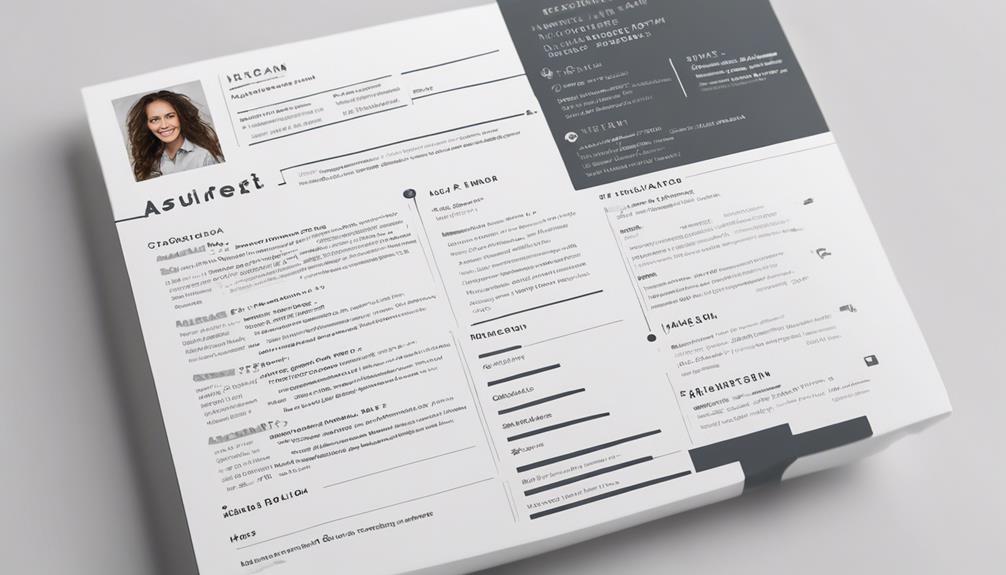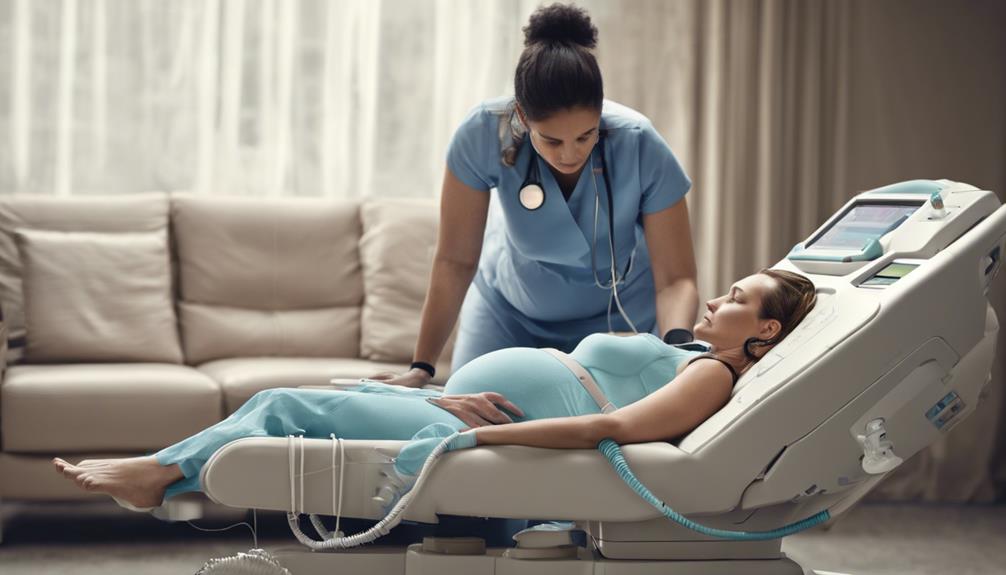As we enjoy the refreshing crunch of ice during the intense heat of the third trimester, it’s crucial to prioritize safety. But how can someone indulge in this cold delight without risking injury?
Let's explore practical tips and precautions to navigate this chilly craving with confidence and peace of mind. From dental concerns to moderation techniques, we'll uncover the secrets to enjoying ice during pregnancy's final stretch without compromise.
Join us as we uncover the keys to safe ice enjoyment and set off on a journey towards a cool and comfortable experience.
Key Takeaways
- Consult healthcare providers to address underlying causes of ice cravings.
- Manage cravings by including iron-rich foods in your diet.
- Be mindful of dental health risks associated with excessive ice consumption.
- Prioritize maternal and fetal well-being by seeking professional guidance.
Safety Precautions for Eating Ice
When consuming ice during the third trimester of pregnancy, it's important to observe safety precautions to guarantee the well-being of both the mother and the baby. Chewing ice can be a common craving for pregnant women, sometimes linked to iron deficiency anemia. While it may seem harmless, excessive ice consumption can have adverse effects.
To make sure safety, it's critical to be mindful of the frequency and quantity of ice chewing. Opting for crushed ice instead of larger cubes can reduce the risk of enamel damage or chipping, making it gentler on teeth. If ice cravings feel abnormal or persist for a prolonged period, seeking medical advice is essential for both maternal and fetal health.
Homemade crushed ice using a sealable bag and a heavy object can provide a safe and convenient option for satisfying cravings while minimizing potential risks. By being proactive and informed about the safety measures surrounding ice consumption during pregnancy, you can promote a healthier outcome for you and your baby.
Hydration Tips for Pregnant Women

Staying well-hydrated is essential for pregnant women, especially during the third trimester, as it supports both maternal health and fetal development. Pregnant women should aim to drink at least 8-10 cups of water daily to maintain perfect hydration levels. Hydrating with water-rich foods like fruits and vegetables can also help contribute to overall fluid intake. It's important to avoid sugary beverages and caffeinated drinks, as they can lead to dehydration, which may harm both the mother and the baby.
Monitoring urine color is a simple way to gauge hydration status; aiming for pale yellow to clear urine is a good indicator of adequate hydration. If experiencing signs of dehydration such as dark urine, dizziness, or dry mouth, it's important to consult with a healthcare provider promptly. Adequate hydration not only helps prevent dehydration but also reduces the likelihood of complications like pica or iron deficiency, ensuring a safe and healthy pregnancy for both the mother and the baby.
Managing Ice Cravings in Pregnancy
Monitoring and addressing ice cravings during pregnancy is essential for ensuring maternal and fetal well-being. It's important to understand the underlying issues that may contribute to these cravings and take steps to manage them effectively.
Here are some strategies to help you navigate through this period:
- Consult with a healthcare provider: Seeking medical advice can provide valuable insights into the potential causes of your ice cravings, such as iron deficiency or pica symptoms.
- Incorporate iron-rich foods: Consuming foods high in iron can help address deficiencies that may be triggering your cravings and support your overall health during pregnancy.
- Be mindful of dental issues: Chewing on ice frequently can have adverse effects on your dental health, so it's important to be aware of any potential dental concerns that may arise.
- Seek professional guidance: Working closely with healthcare professionals can help you manage your cravings in a way that minimizes health risks and ensures a safe pregnancy for you and your baby. Remember, your well-being is paramount, so don't hesitate to reach out for support.
Potential Risks of Eating Ice

Consuming excessive amounts of ice during pregnancy can pose potential risks to both maternal dental health and overall well-being. As much as we enjoy the invigorating crunch of ice, it is important to be aware of the possible consequences. Here are some key risks associated with indulging in too much ice during pregnancy:
| Potential Risks | Effects |
|---|---|
| Dental issues | Damage to tooth enamel |
| Choking hazards | Increased risk, especially with large ice pieces |
| Electrolyte imbalances | Potential seizures from imbalances |
| Iron deficiency | Addressing potential deficiency is vital during pregnancy |
| Healthcare provider guidance | Consultation for monitoring ice intake |
While it's natural to crave ice during pregnancy, monitoring your ice intake can help you strike a balance between satisfying those cravings and safeguarding your health. Don't hesitate to reach out to your healthcare provider for guidance on managing your ice cravings and ensuring a healthy pregnancy journey.
Healthy Alternatives to Munching Ice
To explore healthier options that can satisfy your cravings and support your well-being during pregnancy, consider trying these invigorating alternatives to munching ice:
- Freeze fruit juice into ice pops for a flavorful and hydrating alternative to plain ice.
- Opt for chilled water flavored with citrus slices or herbs like mint to satisfy the need for a rejuvenating drink.
- Experiment with frozen yogurt or smoothie popsicles to enjoy a cool treat while incorporating nutrients into your diet.
- Try munching on chilled cucumber slices or frozen grapes for a crunchy and hydrating snack that can help curb ice cravings.
These chilled snacks not only provide hydration and coolness but also offer nutritional value, unlike plain ice. By incorporating these icy beverages and cool treats into your diet, you can find satisfying alternatives to munching ice cubes while ensuring you stay hydrated and support your well-being during pregnancy.
Frequently Asked Questions
Why Do I Crave Ice Cubes in My Third Trimester?
Understanding ice cravings in the third trimester might be due to iron deficiency anemia or a way to cool down. Addressing these underlying causes is crucial for a healthier pregnancy journey.
How Do I Stop Craving Ice?
Craving ice is common and may indicate underlying issues. Address causes like nutrient deficiencies and seek medical advice if cravings persist. Stay hydrated with water or flavored ice to manage cravings. Develop a safe plan with your healthcare provider.
Why Does Low Iron Make You Crave Ice?
When iron levels are low, the body craves ice as a response to potential anemia. This craving, known as 'pagophagia,' indicates a need for more iron for better blood oxygen transport. Addressing these cravings through proper nutrition is crucial.
Does Eating Ice Help With Nausea During Pregnancy?
Eating ice can help relieve nausea during pregnancy by providing a cooling sensation and hydration. It's a simple way to manage symptoms and stay hydrated. Ice consumption might alleviate queasiness and soothe an upset stomach.
Conclusion
To sum up, by following safety precautions, staying hydrated, managing cravings, and being aware of potential risks, pregnant women can safely enjoy eating ice during the third trimester. Remember to opt for crushed ice, monitor consumption, and seek medical advice if needed.
Stay informed, stay safe, and enjoy your ice in a way that nourishes both you and your baby. Stay cool, stay hydrated, and stay healthy throughout your pregnancy journey.









